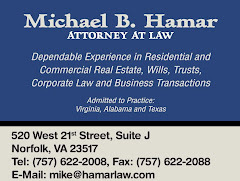 Foreclosure rescue scams target homeowners facing foreclosure, particularly if they are equity-rich but cash-poor. Rescue scams cost consumers thousands of dollars and, often, their most valuable asset — their homes. With foreclosure rates on the rise, foreclosure rescue scams are also increasing. The elderly, and people with low incomes or blemished credit, are particularly vulnerable. Before entering into any such transaction, it is crucial that the homeowner consult a competent real estate attorney. Moreover, NEVER, EVER sign paperwork at the kitchen table that has not been reviewed by some third party looking out for your interest. Some of the scams utilized are as follows:
Foreclosure rescue scams target homeowners facing foreclosure, particularly if they are equity-rich but cash-poor. Rescue scams cost consumers thousands of dollars and, often, their most valuable asset — their homes. With foreclosure rates on the rise, foreclosure rescue scams are also increasing. The elderly, and people with low incomes or blemished credit, are particularly vulnerable. Before entering into any such transaction, it is crucial that the homeowner consult a competent real estate attorney. Moreover, NEVER, EVER sign paperwork at the kitchen table that has not been reviewed by some third party looking out for your interest. Some of the scams utilized are as follows:*
Phantom help - The rescuer charges excessive fees for telephone calls and paperwork that the homeowner could have handled them self, or promises representation and services that never materialize. In either event, the homeowner may have little or no financial resources remaining to save the home after paying these worthless fees.
*
Bailout - The rescuer bails out the homeowner by helping “dispose of” the house. The homeowner typically surrenders title to the house while believing they can stay on as renters and/or buy the house back once they resolve their financial matters. Too often the terms are so onerous, however, that repurchase becomes impossible, the homeowner permanently loses possession, and the “rescuer” walks off with all, or most, of the homeowner’s equity.
*
Bait and switch - Rescuers tell the victims they will obtain a new loan that will solve their problems. In reality, the homeowner signs documents that give the scammers ownership of the home, while the victims remain responsible for the mortgage repayment obligations. Many homeowners believe that they were signing documents for a new loan to make the mortgage current, or arranging for an intermediary to negotiate more favorable terms with the lender.
*
There are a number of things that a distressed homeowner should do to help themselves. Here are some of them:
*
1. Make sure that your home actually is in foreclosure. If you are behind in your mortgage payments, you will receive a delinquency notice from the lender. These letters notify you of your delinquency and give you a chance to resolve the debt. If you receive a Notice of Trustee’s Sale, or similar document, your home is in foreclosure, and you need to respond accordingly IMMEDIATELY. Contacting an attorney on the eve of the foreclosure sale is too late..
*
2. Ask your lender about renegotiating or refinancing your loan or working out a payment plan. Be honest about your financial situation. The sooner you contact your lender, the sooner you may be able to remedy the problem.
*
3. Contact your attorney, not one referred by the individual or company that is involved in the foreclosure prevention/agreement.
*
4. Do not sign a contract under duress. Request time to review documents or to have them reviewed by your attorney. If you do not understand a document’s contents, ask a trusted family member, attorney, or financial planner to review the documents with you.
*
5. NEVER accept verbal representations. Obtain offers in writing, and review all written offers
Thoroughly with a trusted independent advisor.
4. Do not sign a contract under duress. Request time to review documents or to have them reviewed by your attorney. If you do not understand a document’s contents, ask a trusted family member, attorney, or financial planner to review the documents with you.
*
5. NEVER accept verbal representations. Obtain offers in writing, and review all written offers
Thoroughly with a trusted independent advisor.
*
While Virginia has passed legislation directed to limiting the ability of scammers to operate in the state, crooks are very resourceful and the legislation in and of itself doesn't mean that scammers will not continue to find ways to take advantage of distressed homeowners.

.jpg)

.jpg)
No comments:
Post a Comment